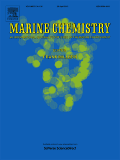
MARINE CHEMISTRY
Scope & Guideline
Decoding the Chemical Mysteries of the Ocean
Introduction
Aims and Scopes
- Biogeochemical Cycling:
Research on the cycling of key elements (e.g., nitrogen, phosphorus, carbon) and their interactions in marine ecosystems, including nutrient dynamics and the role of microorganisms. - Trace Metals and Contaminants:
Investigation of the distribution, speciation, and bioavailability of trace metals and pollutants in marine environments, focusing on their sources, transport mechanisms, and ecological impacts. - Organic Matter Dynamics:
Studies on the production, transformation, and degradation of organic matter in marine systems, including dissolved organic matter (DOM) and its implications for marine food webs and carbon cycling. - Sediment Geochemistry:
Examination of sedimentary processes, including the interactions between sediments and overlying water, benthic fluxes, and the role of sediments in biogeochemical cycles. - Method Development:
Innovative methodologies for analyzing marine chemical constituents, including new sampling techniques, analytical methods, and modeling approaches to enhance data quality and reliability.
Trending and Emerging
- Impact of Climate Change:
A growing body of research is addressing the effects of climate change on marine chemistry, including ocean acidification, temperature fluctuations, and their implications for marine ecosystems. - Microplastics and Marine Contamination:
The investigation of microplastics and their interactions with marine biogeochemical processes has gained prominence, highlighting concerns over marine pollution and its ecological consequences. - Advancements in Analytical Techniques:
There is an increasing trend towards employing advanced analytical methods (e.g., mass spectrometry, electrochemical techniques) for more precise measurements of trace metals and organic compounds in marine environments. - Ecosystem Interactions and Feedbacks:
Research is increasingly focusing on the complex interactions between biotic and abiotic components of marine ecosystems, emphasizing feedback mechanisms and their contributions to ecosystem resilience. - Nutrient and Carbon Fluxes in Coastal Systems:
Emerging studies are concentrating on the dynamics of nutrient and carbon fluxes in coastal ecosystems, particularly in the context of human impacts and changing environmental conditions.
Declining or Waning
- Traditional Nutrient Studies:
Research on basic nutrient dynamics (e.g., nitrogen and phosphorus) has seen less emphasis, with a shift towards more complex interactions involving multiple factors such as climate change and anthropogenic impacts. - Historical Studies of Marine Chemistry:
There appears to be a waning interest in retrospective studies focusing solely on historical data without integrating modern analytical techniques or addressing contemporary issues in marine chemistry. - Single-Element Focus:
Research focusing exclusively on individual trace elements without considering their interactions with other elements or compounds is becoming less common, as integrative approaches gain popularity.
Similar Journals

Ocean and Coastal Research
Advancing marine science for a sustainable future.Ocean and Coastal Research, published by the Institute Oceanográfico of the University of São Paulo, is an essential academic journal dedicated to advancing the fields of Aquatic Science, Oceanography, and Water Science and Technology. Established in 2020, the journal has quickly become a noteworthy platform contributing to the understanding and sustainable management of marine and coastal ecosystems, with an open access model that promotes the dissemination of critical research findings. Although currently categorized in the fourth quartile across its respective fields in 2023, the journal serves as an emerging repository of valuable insights for researchers, professionals, and students alike, aiming to make impactful discoveries that address contemporary challenges in ocean conservation and resource management. The journal's editorial team is committed to fostering interdisciplinary collaboration and upholding rigorous peer-review standards, thereby ensuring high-quality contributions that reflect the dynamic nature of marine science. With an E-ISSN of 2675-2824, all access to published articles is freely available, supporting global research efforts addressing crucial environmental issues.
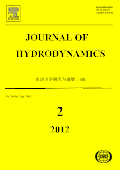
Journal of Hydrodynamics
Shaping the Future of Mechanical Engineering and HydrodynamicsWelcome to the Journal of Hydrodynamics, a premier academic journal dedicated to pioneering research in the fields of Condensed Matter Physics, Mechanical Engineering, Mechanics of Materials, and Modeling and Simulation. Published by Springer, this esteemed journal has been a vital resource since its inception in 1990 and boasts a notable Q1 ranking across its relevant categories, underscoring its importance in advancing knowledge and innovation. With a robust Scopus ranking reflecting its impact—such as being in the 82nd percentile in Mathematics: Modeling and Simulation and the 75th percentile in various engineering disciplines—the journal serves as a critical platform for researchers, professionals, and students. While not currently an open-access publication, the Journal of Hydrodynamics remains committed to fostering scholarly dialogue and disseminating high-quality research that shapes the future of its field. Our mission is to provide a comprehensive forum for the discussion of theoretical and applied hydrodynamics, potentially influencing both academic inquiry and practical applications worldwide.
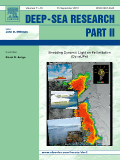
DEEP-SEA RESEARCH PART II-TOPICAL STUDIES IN OCEANOGRAPHY
Diving Deep into Oceanographic DiscoveriesDEEP-SEA RESEARCH PART II-TOPICAL STUDIES IN OCEANOGRAPHY is a leading journal in the field of oceanography, published by PERGAMON-ELSEVIER SCIENCE LTD. With an impressive ranking of Q1 in Oceanography and holding the 20th position out of 145 journals in the Earth and Planetary Sciences category, this journal provides a prominent platform for researchers and practitioners alike. Covering topical studies in oceanography since its inception in 1993, it continues to contribute significant insights into deep-sea research, enhancing our understanding of marine environments. Although the journal does not presently offer Open Access options, it remains a vital resource, appealing to students and professionals who seek to engage with innovative research and practical applications in the oceanographic community. The journal's ongoing commitment to excellence is evident as it plays a crucial role in advancing the field leading up to the present day and beyond.

Annual Review of Marine Science
Exploring the depths of marine science innovation.The Annual Review of Marine Science is a leading academic journal published by Annual Reviews, dedicated to advancing the field of marine science through comprehensive and insightful reviews. With an ISSN of 1941-1405 and E-ISSN 1941-0611, this esteemed journal has established itself as a critical resource for researchers, professionals, and students alike. Recognized for its exceptional quality, it holds a prestigious Q1 ranking in Oceanography for 2023, ranking first out of 145 journals in the Earth and Planetary Sciences category, placing it within the top 1% of its field. The Annual Review of Marine Science covers an expansive scope, incorporating cutting-edge research that spans the biological, chemical, and physical realms of marine studies. It fosters an environment of knowledge sharing and academic discourse, thereby augmenting the understanding of marine ecosystems and their global significance. While the journal is not open access, it ensures that the latest advancements and reviews are made available to a broad audience, reflecting the importance of marine science in addressing pressing environmental challenges. With its dedicated editorial team and commitment to scholarly rigor, the journal is an indispensable platform for advancing marine research and education from its base in the United States.

OCEANOLOGY
Exploring the Depths of Oceanic KnowledgeOCEANOLOGY is a distinguished journal published by Pleiades Publishing Inc that has been a pivotal platform for advancing knowledge in the field of oceanography since its inception. With an ISSN of 0001-4370 and E-ISSN 1531-8508, this journal covers a range of topics related to marine sciences, geographical oceanography, and environmental studies, providing insights and research that significantly contribute to our understanding of oceanic systems. Recognized for its academic rigor, OCEANOLOGY holds a Q3 quartile ranking in the Oceanography category as of 2023, reflecting its impact within the scientific community as evidenced by its Scopus rank of 85 out of 145. Although currently not an open-access journal, OCEANOLOGY remains essential for researchers, professionals, and students by offering a comprehensive collection of peer-reviewed articles. This multidisciplinary approach equips its audience with valuable data and perspectives critical for ongoing research and development in ocean-related fields.
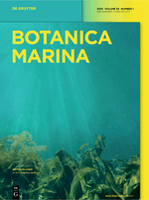
BOTANICA MARINA
Pioneering research at the intersection of ecology and aquatic science.BOTANICA MARINA, published by Walter de Gruyter GmbH, is a prestigious journal dedicated to the fields of aquatic science, ecology, and plant science, with an ISSN of 0006-8055 and an E-ISSN of 1437-4323. Since its inception in 1959, this journal has served as a vital platform for disseminating high-quality research, contributing significantly to the understanding of marine botany and ecosystems. Recognized for its impact, BOTANICA MARINA ranks in the Q2 quartile across multiple categories, reflecting its robust standing in the academic community. With its Scopus rankings placing it in the upper percentiles for Ecology, Evolution, Behavior and Systematics, as well as Aquatic Science and Plant Science, this journal is essential for researchers and professionals seeking to advance their understanding of marine environments. Although it currently does not offer Open Access options, access to its articles can lead to critical insights and developments in the study of marine biodiversity. The journal's commitment to quality and relevance makes it an invaluable resource for students and seasoned researchers alike.

Journal of Oceanology and Limnology
Advancing Knowledge in Ocean and Water SciencesJournal of Oceanology and Limnology, published by SCIENCE PRESS, is a premier academic journal dedicated to advancing the fields of oceanography and limnology. With an ISSN of 2096-5508 and E-ISSN 2523-3521, this journal has emerged as a vital resource since its inception, aiming to disseminate cutting-edge research and comprehensive studies on aquatic environments. Based in China and indexed with notable rankings in Scopus, including a Q2 category in Oceanography and a Q3 category in Water Science and Technology, this journal significantly contributes to knowledge in these crucial scientific disciplines. The H-index for the journal is currently being established, reflecting its evolving impact within the academic community. Moreover, the open access model promotes wider dissemination, ensuring that research findings are accessible to a global audience. Covering a diverse range of topics from ecosystem health to climate impact on water bodies, the Journal of Oceanology and Limnology aspires to foster interdisciplinary dialogue and innovation among researchers, professionals, and students engaged in understanding and preserving aquatic life.
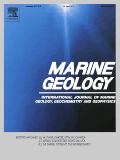
MARINE GEOLOGY
Fostering Collaboration in Marine Research Excellence.MARINE GEOLOGY, published by Elsevier, is a premier journal dedicated to advancing the understanding of marine geological processes and their interactions with the Earth's systems. With an ISSN of 0025-3227 and an E-ISSN of 1872-6151, this esteemed journal has been a vital resource for researchers and professionals since its inception in 1964. The journal is recognized for its high impact, with commendable rankings, including Q1 in both Geology and Oceanography, and Q2 in Geochemistry and Petrology according to its 2023 category quartiles. With a Scopus rank within the top percentiles in various fields, MARINE GEOLOGY offers a platform for original research, critical reviews, and significant advancements in the field, covering topics ranging from sedimentology to geochemical processes in marine environments. Although it does not operate under an open-access model, its rigorous peer-review process ensures high-quality publications that contribute to our understanding of oceanic and geological sciences. Researchers, students, and professionals alike will find MARINE GEOLOGY to be an essential resource for collaboration and discovery within the vast field of marine science.
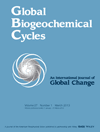
GLOBAL BIOGEOCHEMICAL CYCLES
Advancing our understanding of Earth's intricate systems.GLOBAL BIOGEOCHEMICAL CYCLES, published by the American Geophysical Union, is a leading journal in the field of geochemistry that has gained significant recognition since its inception in 1987. With an impressive impact factor and a Q1 ranking in multiple categories such as Atmospheric Science, Environmental Chemistry, and Global and Planetary Change, it serves as a crucial platform for the dissemination of high-quality research. This journal emphasizes interdisciplinary studies focusing on biogeochemical processes and their implications for global environmental change, attracting contributions from a diverse range of scientific communities. Researchers, professionals, and students engaged in atmospheric sciences, environmental chemistry, and planetary sciences will find invaluable insights and state-of-the-art methodologies within its pages. GLOBAL BIOGEOCHEMICAL CYCLES continues to advance our understanding of the Earth’s systems, thus holding a pivotal position in shaping future environmental policies and sustainability efforts.

OCEANOLOGICAL AND HYDROBIOLOGICAL STUDIES
Illuminating the science of our blue planet.OCEANOLOGICAL AND HYDROBIOLOGICAL STUDIES, published by WALTER DE GRUYTER GMBH, serves as a crucial platform for the dissemination and discussion of pivotal research in the field of oceanography and hydrobiology. With an ISSN of 1730-413X and an E-ISSN of 1897-3191, this journal highlights interdisciplinary studies that address pressing ecological issues impacting marine environments. Although it currently ranks in the Q4 category of oceanography journals and holds a Scopus rank of 96 out of 145, its commitment to publishing high-quality research positions it as a valuable resource for researchers, professionals, and students alike. As it converges into 2024, OCEANOLOGICAL AND HYDROBIOLOGICAL STUDIES remains dedicated to advancing our understanding of aquatic systems, contributing significantly to the scientific community's efforts in ocean conservation and management.